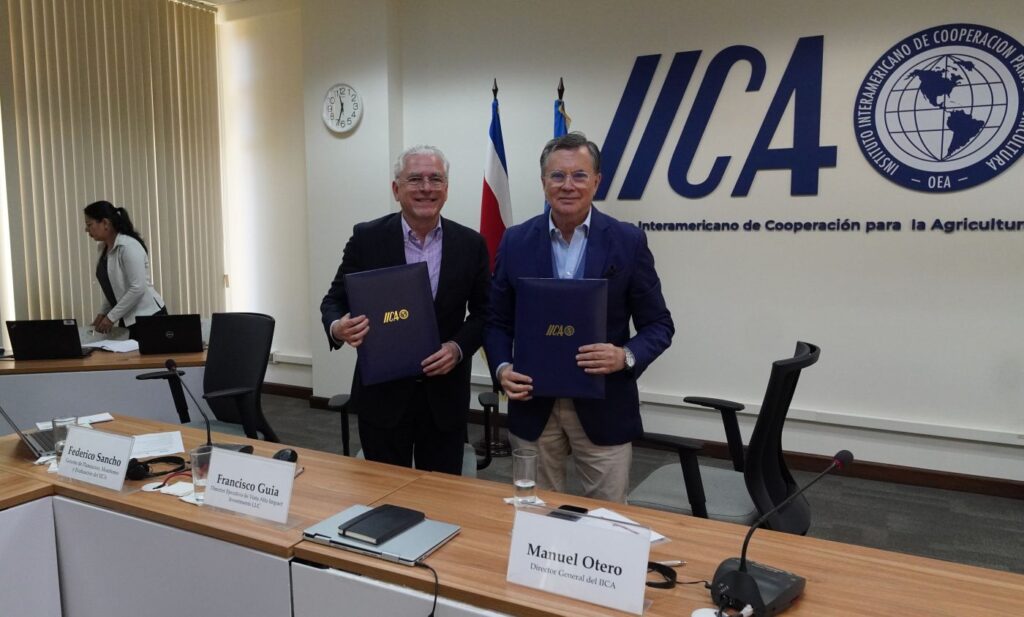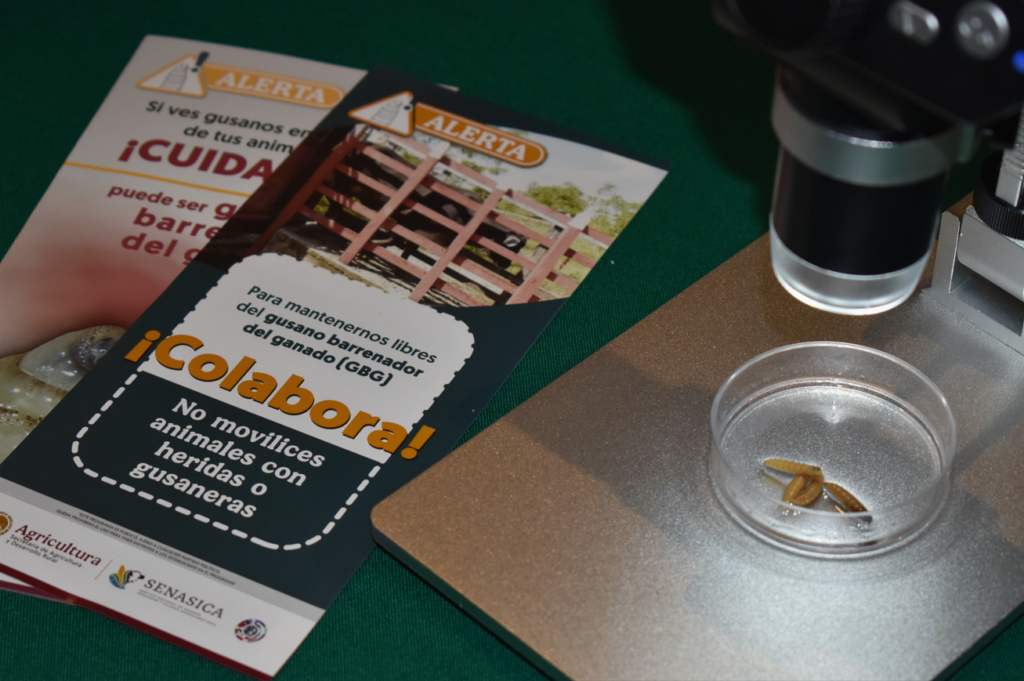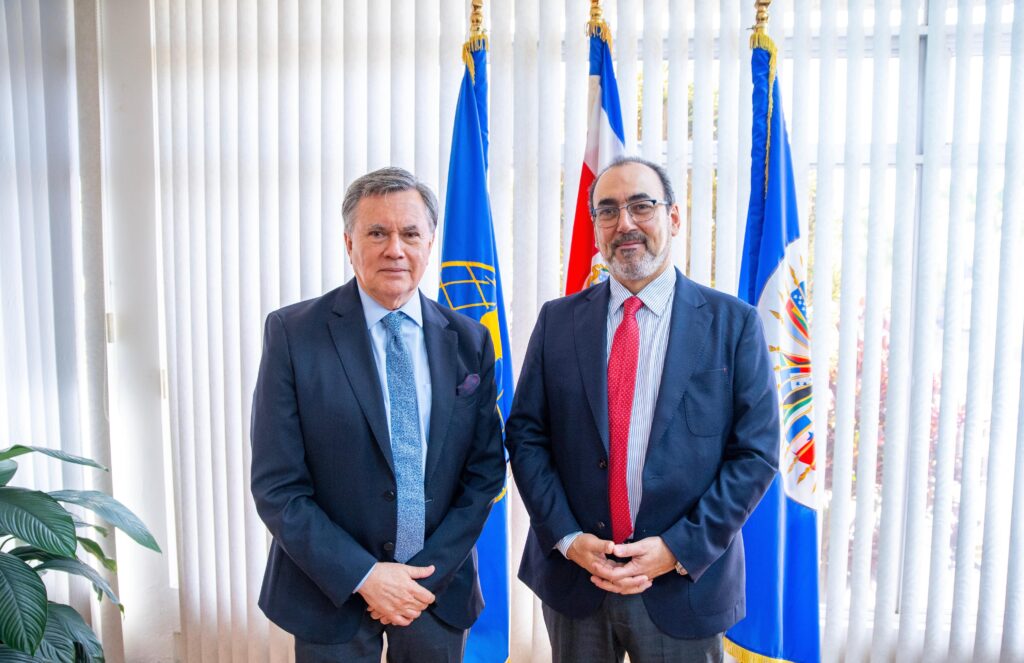The practices promoted through a sustainable intensification approach are transforming the lives of smallholders and their families in the Brazilian Cerrado, Latin America’s most populated semiarid region.

By Dr. Priscila Henríquez, Specialist in the Management of Technological Innovation, IICA, priscila.henriquez@iica.int
There is growing evidence that the natural resource base crucial for food production is being damaged and depleted in many parts of the world. This is of major concern, especially in light of the challenges posed by climate change as healthy ecosystems are essential for the livelihoods of millions of small farmers globally.
Sustainable intensification in agriculture can make important contributions to close the 70 percent gap between the food produced in 2006 and the food the world will need by 2050. This is a form of production whereby yields are increased without causing adverse environmental impact or bringing more land into cultivation. Production practices relevant for sustainable intensification might not be new, but are innovations when applied in a new context. These include integrated pest management, conservation farming, organic agriculture, precision agriculture, and low external input agriculture, among many others.
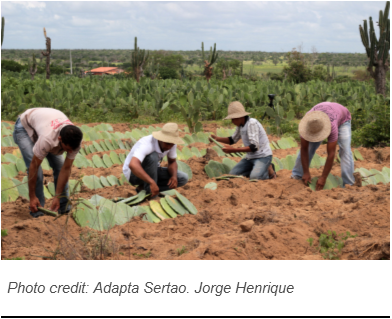 The practices promoted through a sustainable intensification approach are transforming the lives of smallholders and their families in the Brazilian Cerrado, Latin America’s most populated semiarid region. It is well known that the transformation of the Cerrado started in the 1970s, when agricultural research carried out by the Brazilian agricultural research corporation, EMBRAPA, coupled with public and private investment enabled crop production there. Currently, the region contains 44% of the total agricultural production of Brazil including most of the soybeans and cotton, as well as 40% of its beef.
The practices promoted through a sustainable intensification approach are transforming the lives of smallholders and their families in the Brazilian Cerrado, Latin America’s most populated semiarid region. It is well known that the transformation of the Cerrado started in the 1970s, when agricultural research carried out by the Brazilian agricultural research corporation, EMBRAPA, coupled with public and private investment enabled crop production there. Currently, the region contains 44% of the total agricultural production of Brazil including most of the soybeans and cotton, as well as 40% of its beef.
However, the Cerrado continues to be one of the most socially, economically and environmentally vulnerable regions in Brazil. While it contains many large-scale agriculture enterprises, much of the food is produced in a traditional manner by small farmers. But small farmers’ yields are usually low, in part due to the low level of technology used. To make matters worse, these farmers are already dealing with climate change, as the average temperatures in the Cerrado have increased 2°C between 1962 and 2012, augmenting seasonal droughts.
Adapta Sertão is a coalition of organizations that promotes social strategies and technologies to help farmers adapt to climate change. The effort started in the municipality of Pintada, some 300 km west of Salvador, the capital State of Bahia. The main economic activity in the region is livestock raising and subsistence farming mainly manioc, corn and beans. Since 2006, Adapta Sertão has been working with 465 family farmers to adapt their agricultural systems to the harsh realities of a hotter climate. They are achieving this through the valorization of the ecosystem services generated by the local biome called Caatinga.
Member farmers implement a climate-smart intensification system called Sustainable Smart Agro-ecology Module (MAIS, for its acronym in Portuguese). MAIS is suited to particular crops and production systems that test practices and technologies along with farmers. MAIS also provides technical assistance and microcredit to facilitate the adoption of technologies, strengthen producers’ organizations and promote value addition and market access.
MAIS is rooted in Community-based Adaptation (CbA) strategies, through which local organizations and farmer leaders work together to adapt new technologies to their own reality. This way the innovations emerge from the community, which then takes ownership and sustains them, reducing reliance on government programs. Adapta Sertão also makes available scientific research and supports articulation of public policies to improve allocation of technical, financial and human resources to benefit farmers.
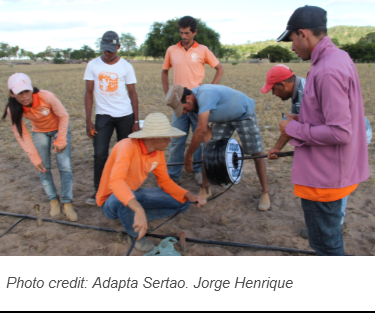 Reginaldo Santana who works 23 hectares in Jacuípe, shared how he has improved his production system and is overcoming adversity through MAIS. After the severe drought of 2010 and 2011 that degraded the natural pastures, Reginaldo was forced to buy expensive feed supplements for his herd of 30 cows. Despite these efforts, the total milk production was only 50 to 60 liters per day. It was then that he decided to join MAIS- milk.
Reginaldo Santana who works 23 hectares in Jacuípe, shared how he has improved his production system and is overcoming adversity through MAIS. After the severe drought of 2010 and 2011 that degraded the natural pastures, Reginaldo was forced to buy expensive feed supplements for his herd of 30 cows. Despite these efforts, the total milk production was only 50 to 60 liters per day. It was then that he decided to join MAIS- milk.
With the support of Adapta Sertão’s technicians, Reginaldo sold his less productive animals , and introduced pastures adapted to the severity of the environment to lower supplement costs and improve feed quality. He then obtained a loan for expanding the production of palma forrageira, a drought resistant variety of prickly pear often used for animal feed. He planted two hectares of this crop and bought improved breeds of cows. The financing also included a small tractor to facilitate soil management, help transport goods, and grind the crop leaves for forage. After seven months, Reginaldo was able to incorporate the palma forrageira as a supplement in his animals’ diets. One year later, production has increased to 12 liters of milk per day per animal, for a total of his herd of an average of 100 liters daily.
Reginaldo is reaping economic benefits: his operating costs fell from US$0.65 per liter to US$0.11 per liter, thus increasing his profits. Reginaldo indicated that his next step will be to buy the mechanical harvester to further increase the efficiency of his farm operation. “Currently I earn the equivalent of minimum wage plus an additional US$533 per month,” he affirmed.
Apart from professionalizing his activities, what was important to Reginaldo is the improvement in his quality of life. “I have more time and I can go home and enjoy lunch with my family. I am proud,” he concluded.
The Adapta Sertão case won a competition organized by the Regional Fund for Agricultural Technology (FONTAGRO) and its sponsors, IICA and the Inter-American Development Bank and was featured in a publication with other cases from Latin America, that can be found here.
To contribute and disseminate climate smart practices, FONTAGRO launched its 2017 call for proposals to support research on sustainable intensification of agriculture for the benefit of small farmers in Latin America and the Caribbean. Find out more at here.
Policy makers across the world now recognize that the way in which food is produced and distributed needs to change. Sustainable intensification practices such as the one Reginaldo is implementing offer an opportunity to involve the community in the development of their own solutions while at the same time improving the management of soil, water and biodiversity.
IICA and FONTAGRO are committed to disseminating successful stories and continuing the policy dialogue to address pressing issues in agriculture and food security.
More information: priscila.henriquez@iica.int
*The opinions expressed in this newsletter are those of the authors and they do not reflect the position of the Institute on the topics presented.
*This post appears in the IICA Delegation in the USA Newsletter – March – April 2017
